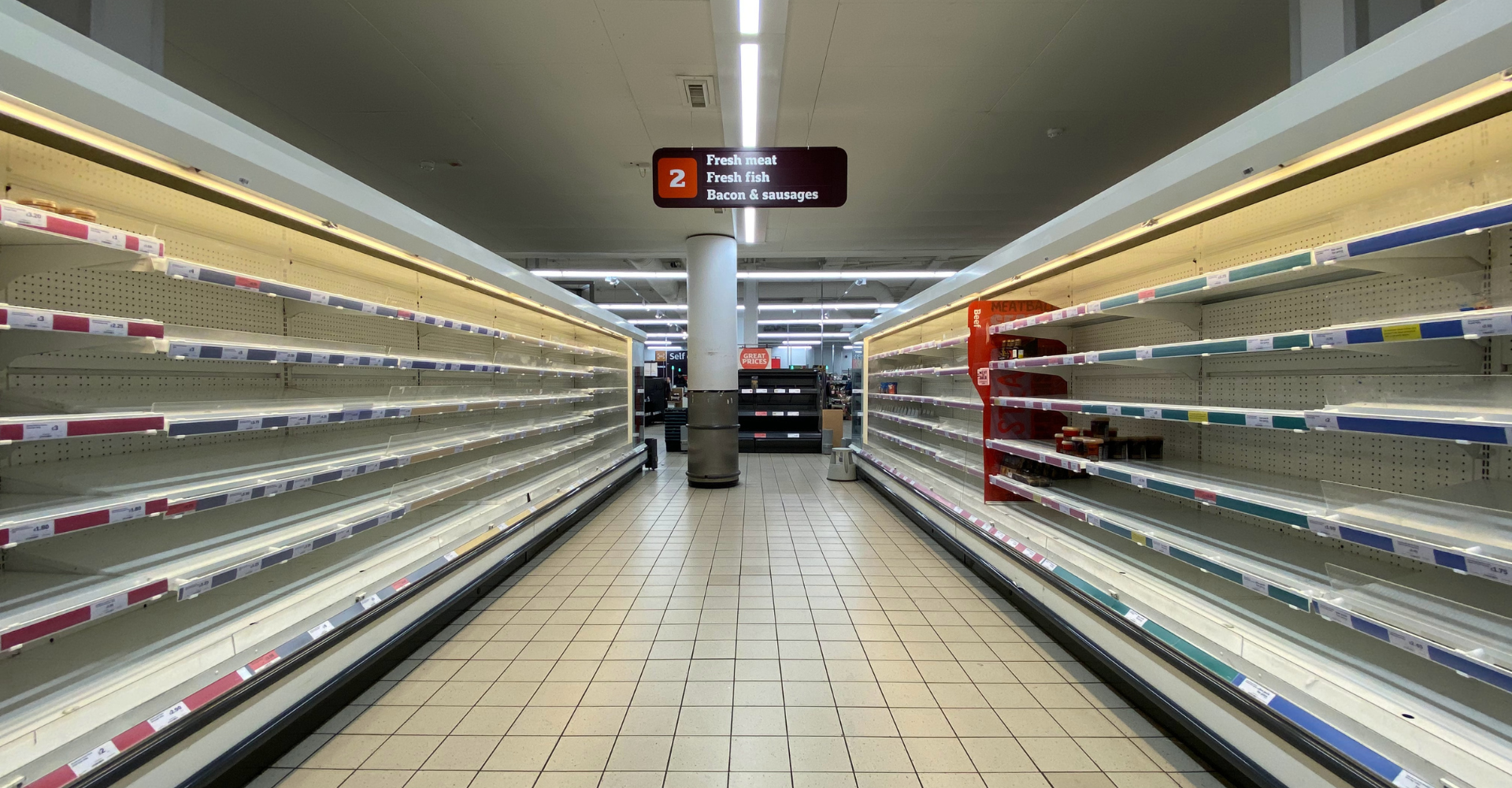Big chain supermarket bosses have hinted that we may have less choice when doing our Christmas food shop this winter. Although, to clarify they have stated we are not facing a food shortage, more as first choice brands and products may not be readily available as in previous years.

What are the contributing factors?
- Port hold-ups
Container ports around the world are dealing with backlogs in containers, originally stemming from post Covid-19 lockdowns when there was a sudden surge in cargo activity and storage. More specifically for the UK, it is the lack of drivers available to collect the freight that is creating the congestion with the added pressures of Christmas creating a surge in import demands.
It is anticipated empty shelves are to be expected well into 2023 as port delays put more orders on hold and ongoing supply chain issues. It’s reported that UK ports are working flat out processing imports, however once a port becomes congested, it takes a long time to process the ripple effect of the congestion.
It is evident there is more that needs to be done to improve the transport industry, not only to train new drivers but also to entice drivers back into the industry. It is only when this stabilises that ports can start to work effectively.
- Increasing energy costs
It’s been impossible not to hear about the increasing energy costs effecting both households and businesses. Unfortunately that means it’s more expensive to produce and transport goods. Suppliers are having to face the challenge of either absorbing the increase or passing the costs on to the customer. Some retailers are taking the decision out of suppliers hands and preventing any price increases in an attempt to remain competitive and keep prices low. However in doing so, they are forcing suppliers to pull out of contracts to supply large retailers and leaving empty spaces on the previously overflowing shelves.
The British Retail Consortium have reported that 3/5 retailers expect prices to increase in the run up to Christmas.
- CO2 shortage
CO2 shortages have blown up again in Europe, largely due to the war in Ukraine and the reduced supply of natural gas to Europe. Whilst some of the shortage is due in part to a number of suppliers temporarily closing their factories for maintenance, another factor is the rising energy costs. Because of the increasing energy costs CF Fertilisers, who supply 42% of the UK’s CO2 announced an impending hiatus back in August and as of yet have not confirmed when or duration of the supply pause. Previous energy rises have resulted in the UK government offering support to the US owned company but as of yet there has been no further support offered.
CO2 plays a vital role in; beer and carbonated drink production, keeping food fresh and the humane slaughter of animals. The shortage risks further diminishing choices on offer in the supermarket and further driving up food prices.
Unfortunately, all of this means we can expect to face further price hikes, shortages and delays well into the new year. Until the economy stabilises and energy prices go on the decline the UK face further disruptions only elevating further the current issues.




